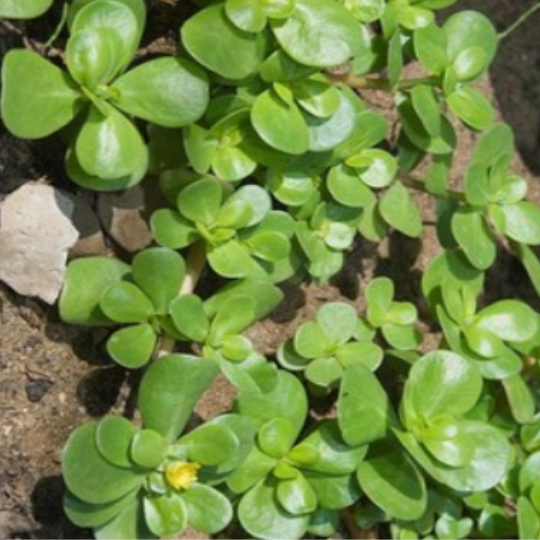Common purslane (Portulaca olerecea)
Regarding the common purslane, to speak of an ancient vegetable is an understatement, purslane was indeed known to the Egyptians 4000 years ago. Then it was, like many plants, "forgotten". It nevertheless returns to the stalls thanks to market gardeners cultivating ancient vegetables. In salads or mesclun, purslane is eaten fresh, and its leaves, in addition to being very tender, offer you a cocktail of omega 3 and antioxidants. Purslane is emollient and laxative if eaten in large quantities. It is also depurative and diuretic. Chewing a few leaves soothes inflamed gums and minor sore throats.
MAINTENANCE AND OTHER CONSIDERATIONS
Also remember to pinch the stems when they reach 10 cm, to prevent them from spinning without making new branches and new leaves.
| Quantity: Envelope of about 250 seeds |
| Plant type: Annual |
| Family: Portulacaceae |
| Flower color: Yellow |
| Plantation: In the garden after the risk of frost |
| Days to maturity: 60 to 90 days |
| Germination: 10 to 15 days |
| Plant spacing: Lighten to 20 cm |
| Depth: On the surface |
| Exposure: Full sun |
| Soil: All types of soils |
| Shape: Crawling |
| Width: 20 cm to 30 cm |
| Height: 15 cm to 30 cm |

![[122] Achocha cucumber (Cyclanthera pedata)](/web/image/product.product/1174/image_128/%5B122%5D%20Achocha%20cucumber%20%28Cyclanthera%20pedata%29?unique=c74fc8b)
![[030] Detroit Beet (Beta vulgaris)](/web/image/product.product/792/image_128/%5B030%5D%20Detroit%20Beet%20%28Beta%20vulgaris%29?unique=afca737)
![[082] Épinard Matador (Spinacia oleracea)](/web/image/product.product/819/image_128/%5B082%5D%20%C3%89pinard%20Matador%20%28Spinacia%20oleracea%29?unique=e820f73)
![[096] Forellenschluss lettuce (Lactuca sativa var, longifolia)](/web/image/product.product/455/image_128/%5B096%5D%20Forellenschluss%20lettuce%20%28Lactuca%20sativa%20var%2C%20longifolia%29?unique=afca737)
![[042] Scarlett Nantes Carrots (Daucus carota var. sativus)](/web/image/product.product/943/image_128/%5B042%5D%20Scarlett%20Nantes%20Carrots%20%28Daucus%20carota%20var.%20sativus%29?unique=117916f)